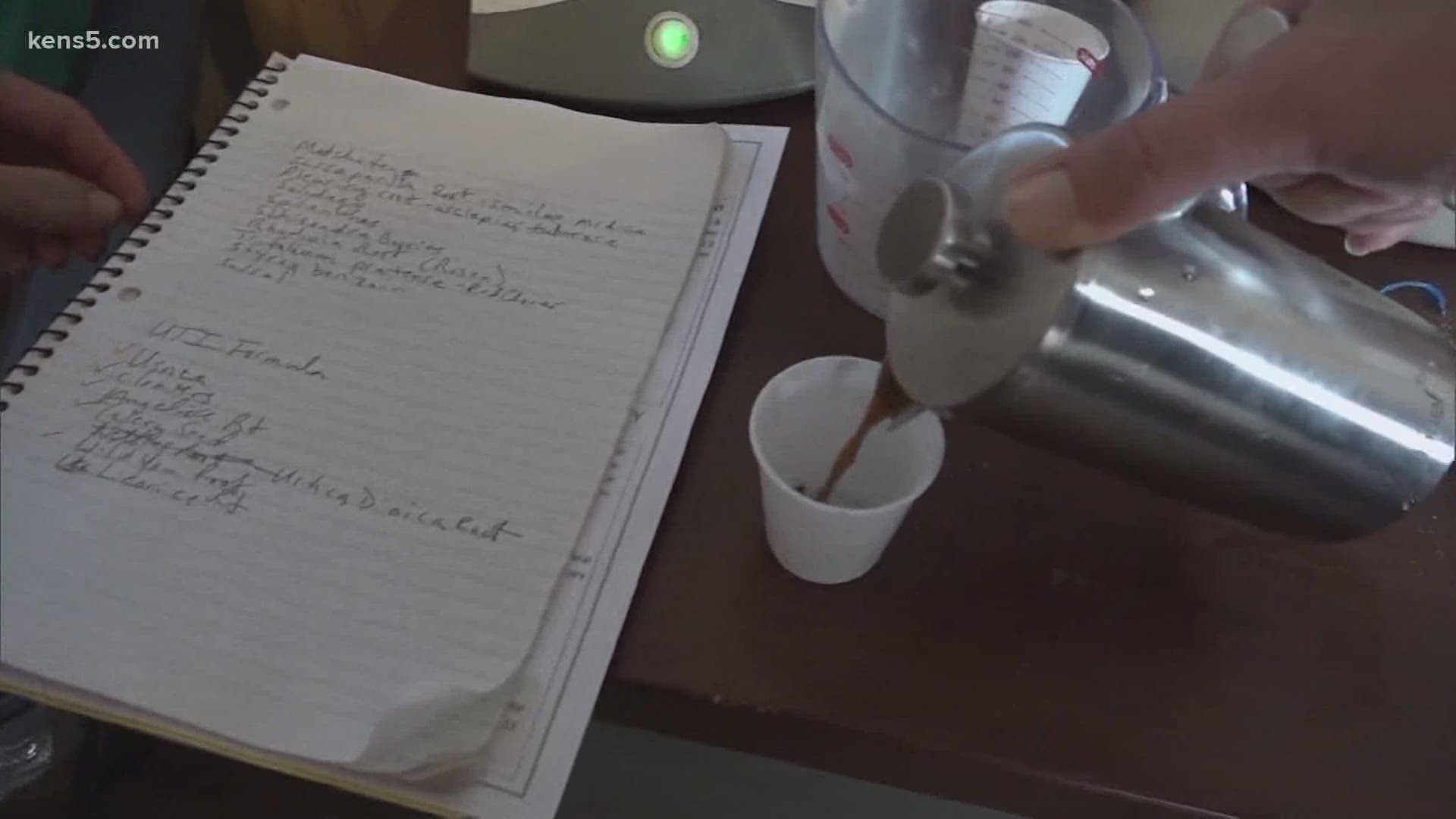We have been hearing about extreme preppers for years, but in the midst of the coronavirus pandemic, a San Antonio group is teaching people how to be healthy and safe without going overboard.
The outdoor campus of the Human Path School near Bulverde is quiet these days, as many of their classes have moved online. Quiet, that is, except for the chatter of chickens, and the breeze in the trees. Otherwise, the campus is dormant.
But Sam Coffman, who has been teaching and preaching about sustainable living for more than 30 years, is busier than ever—teaching online about not just how to survive, but how to thrive during these challenging times.
Coffman said while many have advocated for an extreme bunker-type mentality, "it's much more important to be flexible, and be resilient and be agile."
“The idea that you've got to have a gigantic storehouse (and) a backup of food, I think is overplayed, a lot,” Coffman said.
Coffman said the average family can do simple things to prepare for hard times and illness, and probably need not be prepared for a zombie apocalypse.
"Prep for, say, 72 hours,” Coffman said. “It's good to start off small. If you can prep for 24, 48 or 72 hours, if you can do that, you can just keep repeating that. And each time you repeat that, you're prepping for longer."
He believes a few extra items purchased on each shopping trip is a much better idea than amassing a huge stockpile of resources.
“It's really simple, if you're going to the store to buy groceries, to add in an extra can of beans or an extra bag of rice or an extra can of peanut butter," he said. "Whatever your foods are that you like that will be shelf-stable and give you protein, carbohydrates and fat—all the things that you need to work with, but at the same time, not breaking the budget.”
Coffman said many people have a hyperbolic notion in their heads of doomsday preppers who expect nuclear war or an asteroid impact, or otherwise another event that would result in a huge loss of life. He cleared up the misconception, saying it is far more likely that ordinary folks could end up dealing with more personal challenges.
“The more realistic scenario is going to be personal disaster, like fires, or like floods here in Texas, or the situation with COVID-19 where maybe two or three members of the family get really sick,” Coffman said. “Those are more personal, where the rest of the world continues to function. You still have to go to work, pay your mortgage, and that's a far greater proportion of what you have to deal with.”
At the school, they teach about making herbal medicine, food security, water purification and much more.
Coffman also believes in the power of community; that working together on common goals is a more effective way to cope with hard times.
“Honestly, community plays a role in all this and it’s a huge piece of prepping that people completely overlook, because you have to be able to diversify food and water and security,” Coffman said. “Everybody – not one person – is going to have all of those things, generally. And if they do, they aren't going to be able to do all of those things at the same time.”
Coffman said doing simple things to be healthy and fit is more important than ever.
“I think one of the things that has happened a lot with the quarantine is it's been difficult for people because it's a lot of stress," he said. "It's a lot of physical stress. And there's a lack of a pattern there for people to stay in shape."
Coffman said people who can no longer go to dance class or the gym must develop the discipline to come up with new ways to remain active, whether it's finding new ways of keeping good nutrition or finding exercise. And that's not all.
“You need clean water. That means you need to have water that's already stored, or you need to have some filtration process in place with a source of water,” Coffman said.
Dealing with waste can be simple as well.
“How are you going to keep clean? How are you going to deal with human waste? There are very simple answere: five-gallon buckets and saw dust, for example."
Security and communication are important too, Coffman said.
“You need some form of communication, which means you need some kind of power, whether it's alkaline batteries or rechargeable batteries or whether it's a generator. Whatever it is, in our day and age, it's also very important,” Coffman said.
Coffman said it is the small details of daily living that must be prioritized.
“There's kind of a matter of pulling apart the myth and the Hollywood about prepping to the reality of it, which is more boring," he said. "But it's nuts and bolts and, right off the bat, think of these things."
The Human Path School offers classes related to many of these topics year-round. You can also find them on Facebook. When safe to do so, the Human Path hosts classes here.

